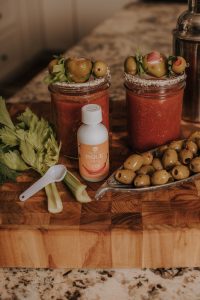We’ve all heard tales of homemade edibles – from the hilariously potent to the delightfully subtle, right? Well, at Stem Haverhill cannabis dispensary, we’re here to help you whisk up your very own magical munchies that hit the sweet spot every time. We’re going on a fun, educational journey together, where edible math is the secret ingredient to your masterpiece. So, put on your apron and let’s unlock the secrets of THC dosage for your homemade delights.
Unraveling the Magic Behind Edibles
Before we dive into the nitty-gritty (or should we say, buttery and gritty?), let’s peel back the layers of what really gives edibles their unique charm. From the intriguing process of THC absorption in the liver to the transformation into the potent 11-hydroxy-THC, and from the strength of the strain to dosage and distribution – these are the building blocks of your canna-culinary journey. Once you master these, you’re on your way to creating delectable, precisely dosed cannatreats.
- Absorption Process: Unlike inhalation, cannabinoids like THC and CBD in edibles are processed through the liver. Here, THC transforms into a potent form, 11-hydroxy-THC. This metabolite, even in lower quantities, creates stronger, longer-lasting effects compared to inhaled, delta-9-THC.
- Strain Strength: Different cannabis strains have varying potencies. Knowing your strain’s THC content helps gauge its impact on your edible’s strength.
- Decarboxylation Process: Heating THC and CBD activates them into THC-A and CBD-A. Their active state impacts an edible’s potency. However, if heated too high, THC could degrade, reducing potency.
- Dosage & Distribution: The more cannabis an edible contains, the stronger it will be. Ensuring even distribution is critical to avoiding uneven THC distribution across your edible.
- Individual Absorption: As everyone metabolizes THC and CBD differently, the same edible can yield different effects in different individuals. It’s crucial to know your edible tolerance for the best experience.
Three Cheers for Simple Potency Calculation!
- Determine Initial THC Content
To find the total THC content in your cannabis, multiply the amount of cannabis in grams by the THC content per gram. For instance, if you’re using 3 grams of 15% THC cannabis, you have 450 milligrams (mg) of THC in total (3 grams x 150 mg/g). - Account for Infusion Efficiency
Not all THC will transfer during the infusion process. The general infusion efficiency is about 60%. Therefore, in our example, 60% of 450 mg gives us 270 mg of THC in the infused butter/oil. - Calculate Potency Per Serving
Finally, determine the THC content per serving by dividing the infused THC by the number of servings. If we’re making 12 cookies with the 270 mg THC-infused butter/oil, each cookie will have about 22.5 mg of THC (270 g/12 cookies)
Brilliant Budtender Hacks for Accurate Measurements
To hit the bullseye with your THC dosage, here are some golden tips from our friendly community of brilliant budtenders:
- Always know your THC percentage to a T.
- Stir, stir, stir that infused mix – the more uniform, the better your dosing accuracy.
- Craft your treats with care, ensuring even size and distribution.
- And most importantly, label those delightful goodies! Let your fellow canna-culinary explorers know just how much THC magic is packed inside each treat.
Wrapping Up the Canna-Culinary Journey

The secret to the art of edible-making lies at the intersection of creativity, science, and a dash of math. Start with a small piece, adjust as per your comfort, and remember to enjoy the journey as much as the destination. With these tools in your metaphorical apron pocket, you’re all set to bake, share, and savor your homemade marvels!
Craving more cannabis-infused adventures? Dive into our blogs on nano-emulsion in cannabis beverages or the wonderful world of live rosin edibles!
*The contents of this blog are intended for informational purposes only. Always seek the advice of a physician or other qualified healthcare provider with any questions you may have regarding a medical condition.*

